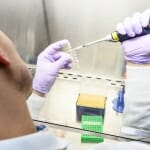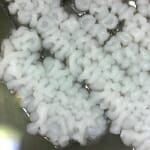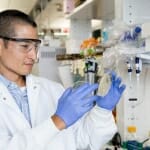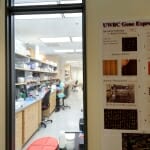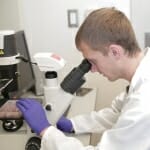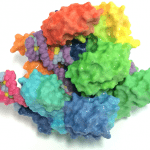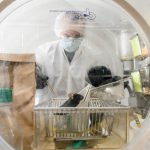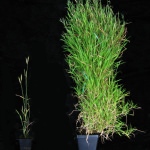Tag Genetics
Gene-editing tool now being used to develop better antibiotics
Jason Peters and colleagues have repurposed the gene-editing tool CRISPR to study which genes are targeted by particular antibiotics, providing clues on how to improve existing antibiotics or develop new ones.
Sussman to lead Genome Center of Wisconsin
Mike Sussman, longtime director of the UW–Madison Biotechnology Center, has announced that he is stepping down from that position to serve as director of the genome center. Chris Bradfield has been named interim Biotechnology Center director.
An Achilles heel discovered in viruses could fuel new antiviral approaches
Scientists at the Morgridge Institute for Research have discovered a promising new target to fight a class of viruses responsible for health threats such as Zika, polio, dengue, SARS and hepatitis C.
Study advances gene therapy for glaucoma
A new study shows an improved tactic for delivering new genes into the eye's drain, called the trabecular meshwork, offering a promising treatment for glaucoma.
Designer molecule points to treatment for diseases caused by DNA repeats
“Most young people with Friedreich’s ataxia develop severe heart problems and are wheelchair-bound," says researcher Aseem Ansari, "but the disease is so rare that few drug companies invest in it."
Course explores new field at intersection of genomics and society
Jason Fletcher is researching how public policy intersects with genetic data, what our genes can predict about how society functions, and how we should use this data responsibly — an area of study dubbed "social genomics."
Reflective art installation displays beauty, intrigue of genetics
Pictures obtained from Ahna Skop’s exploration of the cell — as well as striking images from other UW–Madison research projects — will serve as a basis for a traveling art exhibit, “Genetic Reflections.”
Genetics and stress interact to shape human health and well-being
Scientists at the University of Wisconsin–Madison’s Waisman Center have shown one way in which human genetics and chronic stress interact to shape health and well-being later in life.
Bacterial supermachine reveals streamlined protein assembly line
Biochemists from the University of Wisconsin–Madison and the Max Planck Institute (MPI) for Biophysical Chemistry in Germany have revealed the defined architecture of what is called the “expressome.”



